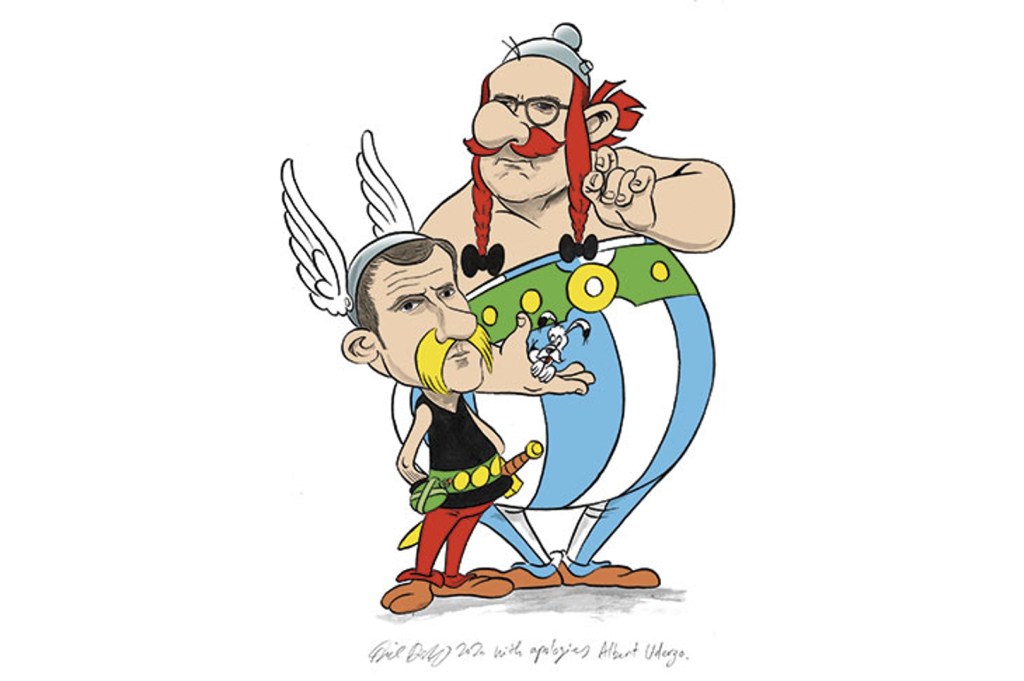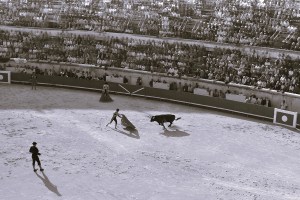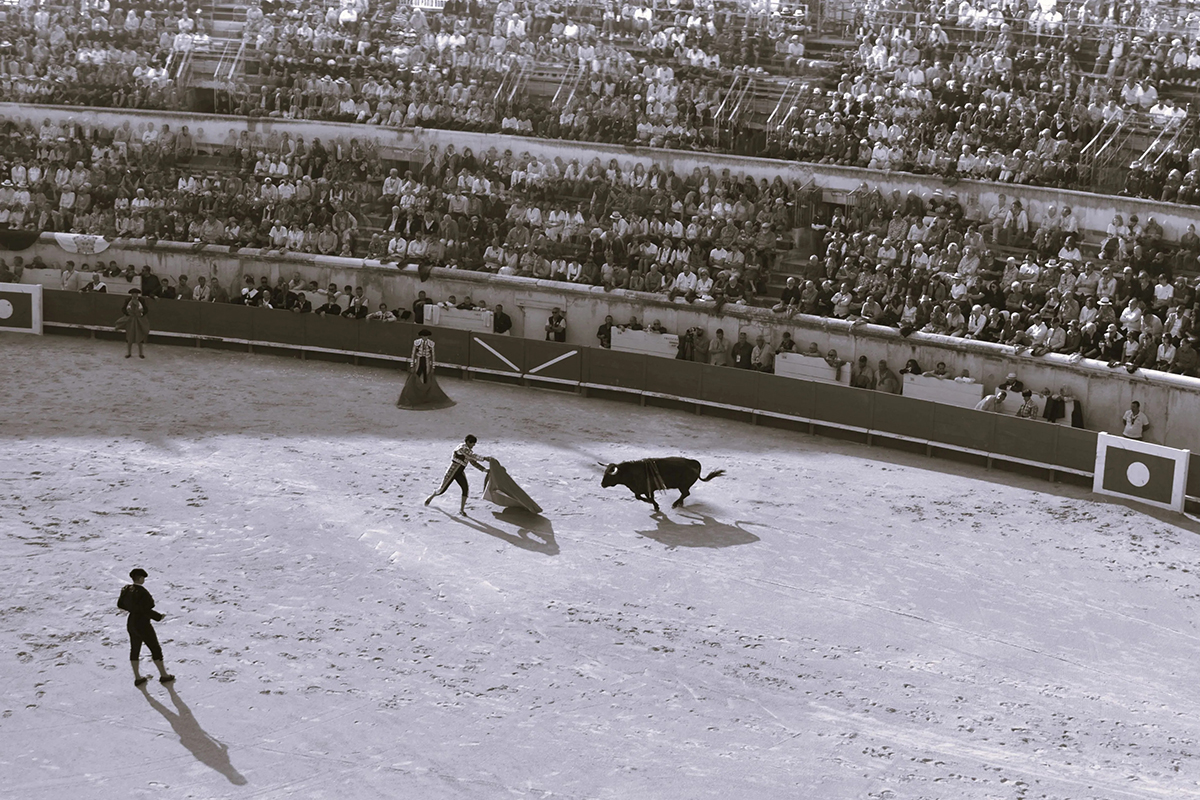It is just over three years since the election of Emmanuel Macron to the presidency of France. All of Gaul is united against him. All? No! From a village in the foothills of the Pyrenees, in a remote corner of Occitanie, Jean Castex, the irréductible mayor of the tiny commune of Prades (population 6,124), has emerged in a puff of smoke to become the President’s new prime minister. Castex is a previously almost unheard-of regional politician with a name that sounds as if he has leapt directly from an Asterix comic book.
Being prime minister of France is probably the most thankless job in European politics. The president takes the credit for whatever goes right, while the premier takes the blame for whatever goes wrong. One wonders why Castex accepted. He’s already thought to be paid at least €179,000 a year for his bulging portfolio of public-sector jobs.
Despite his superficial rusticity, Castex is an énarque (graduate of the elite École nationale d’administration), just like his predecessor, Édouard Philippe, and just like Macron himself. His mayoralty is a mere adornment to a career spent largely in Paris engaged in work more sensitive than municipal trash collection. Although a member of the squishy-right Les Républicains until this year, he is more technocrat than ideologue. There’s little trace of him expressing any strong views on anything: he’s a versatile administrator, a ‘Swiss army knife’.
While Castex gets on with the daily grind, Macron can now concentrate on getting re-elected, which is no longer quite the foregone conclusion previously assumed. After winning a landslide against Marine Le Pen in 2017, and capturing an absolute majority in the National Assembly in subsequent parliamentary elections, Macron’s presidency has been a catalogue of error, failure and electoral defeats. His economic reforms have been limited. His parliamentary majority has evaporated as his own deputies have deserted him. He remains bruised from his clumsy increase in fuel tax, which stimulated the revolt of yellow-jacketed peasants (les ploucs). His ambition for European renaissance failed to gain traction at the European parliamentary elections last year, where his candidates scraped into second place with a miserable 22 percent of the votes.
And last month, in the second round of the French municipal elections, he was humiliated again. His candidate for mayor of Paris was thrashed, failing even to win herself a seat on the Paris city council. In Marseilles, France’s second city, his party, La République En Marche, won 1.2 percent of the vote.
There’s a whiff of 1789 in the air. With roughly 650 days remaining until the next presidential election, Macron is running scared. Former minister Bernard Tapie recently offered the besieged President a startling warning along the lines of the courtier informing Louis XVI: ‘It isn’t a revolt, Sire. It’s a revolution.’ Said Tapie: ‘Your problem, Monsieur le Président, isn’t that you’re unpopular. It’s that people want to kill you.’
Nevertheless, it’s way too soon to write off Macron. Something red, something blue and something green seems to be his governing strategy. Meanwhile, there’s a weird council of war assembling around him. The inner troika comprises the billionaire, nominally radical-socialist Tapie, François Bayrou, president of the centrist MoDem party that is coalition partner to Macron’s dwindling group in the National Assembly, and, from the right, the dark knight Nicolas Sarkozy, the former president who slithers in and out of the Elysée as to the palace born.
Electoral calculus strongly favors Macron. The two-stage voting system might have been designed just for him. A new poll shows him neck-and-neck with Le Pen in first-round voting intentions, far ahead of any other candidate, but with Macron likely the victor in the second round, with 55 percent vs 45 percent for Le Pen.
Robert Ménard, the astute, independent right-wing mayor of Béziers, recently said Le Pen was Macron’s life insurance policy, because she will never beat him. But Macron is nonetheless nervy. With opposition parties fractured and hapless, it’s unlikely anyone can stop Macron and Le Pen cutting through to the second round in 2022. Philippe, Castex’s predecessor, was sacked for scoring higher poll ratings than his boss, and is unlikely to feature. As for the Socialists, Anne Hidalgo, who was re-elected mayor of Paris last month with green support, has more appeal in the hauts-bourgeois quartiers of Paris than in the provinces.
[special_offer]
Macron’s fear is that in a plunging economy, Le Pen could defy conventional wisdom and defeat him, aided by abstentionism. He knows he needs to present a more human, less arrogant face, and he believes he needs big ideas to energize his campaign. Banging on about Europe has got him nowhere. The green lane looks superficially attractive but carbon taxes won’t endear him to the gilets jaunes, not that they would vote for him anyway.
Other options include constitutional reform, a Sixth Republic, abolishing the post of prime minister and proposing an executive presidency. This is rumored to be Sarkozy’s big idea. But does France really need more power to be concentrated in one individual?
Whatever he does, Macron is unlikely to win a majority in the Assembly in the next parliamentary elections. As for Castex, after his novelty wears off and he’s inevitably défenestré, he can always return to his commune in the shadow of Canigou, the sacred mountain of Catalonia, where he can tote up his newly swollen pension entitlements and busy himself with municipal garbage collection. Macron, it still seems likely, will go on and on. Hated, weakened, but immovable.
This article was originally published in The Spectator’s UK magazine. Subscribe to the US edition here.

























